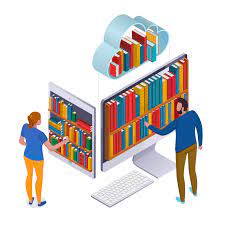Self-medicating refers to the use of substances, such as alcohol or drugs, to alleviate symptoms of mental or emotional conditions, such as anxiety, PTSD, or depression, without the guidance or supervision of a medical professional. Many people resort to self-medication to cope with difficult emotions or stress and avoid consulting a health professional.
While minor forms of self-medication, such as taking over-the-counter medicines to cure headaches, won’t do much harm, regularly consuming medication without a doctor’s opinion can become dangerous. In addition, it can lead to addiction and other negative health consequences since self-medication won’t address the condition’s underlying cause.
Here are some of the top reasons why self-medicating does more harm than good and why it is essential to seek professional medical treatment instead.
Worsening Condition
The idea of self-medicating with various substances seems like a solution to most people. However, in reality, it is just a temporary solution that can lead to several health issues. For any life-threatening symptoms, it is crucial to seek immediate medical attention like Jackson Heights primary care clinic, where patients are offered accessible and convenient medical services.
The consequences of self-medication are often felt at various stages. To begin with, self-medicating without proper medical evaluation and diagnosis may lead to treatment for the wrong condition, thereby worsening the health problem. Furthermore, using substances as part of self-medication while taking prescription medications can lead to dangerous drug interactions, worsening existing health conditions and also causing new ones.
Lastly, self-medication may temporarily relieve symptoms but doesn’t address underlying causes. This leads to delayed diagnosis and treatment, worsening the condition over time. In addition, it’s important to note that if you have a mental health condition, self-medication may worsen your symptoms by making them harder to manage and could lead to more intense symptoms or a relapse.
Therefore, consulting a health professional before taking medications is highly advised to avoid the negative effects.
Developing Addiction
One of the most common outcomes of self-medication is the development of substance use disorder or addiction/dependence on drugs or/and alcohol. When someone is self-medicating, they may not be aware of the potential risks of addiction and how quickly addiction can develop.
Using substances to alleviate symptoms of a mental or emotional condition can provide temporary relief, which can be highly comforting and make people want to use the substance again to achieve that same relief.
But over time, a person may develop a tolerance to the substance. Hence, they will have to use more of the self-medicating substance to achieve the same effects. This leads to an increased risk of addiction and also an increased risk of overdose.
Additionally, the chronic use of substances to self-medicate changes the brain’s chemistry, making it harder for someone to stop using the substance. This not only leads to addiction, but the negative effects on the brain can result in mood and personality changes.
So, your best bet is to always seek professional help rather than turn to self-medication. In case you think you might be struggling with addiction and side effects like mental or psychological disorders that disrupt your pace in life, sign up for a leading benzodiazepine treatment facility in Massachusetts and leave your prescription use and management to the experts.
Causing More Conditions
In the long run, self-medication can lead to new, more serious health conditions. For instance, substance abuse. Regularly using substances to self-medicate can lead to addiction and other substance abuse problems, which can have detrimental effects on your physical and mental health and can lead to serious health problems.
Such as liver disease, respiratory problems, cardiovascular disease, and even cancer. In addition, interactions between self-medication and your prescription medications can be dangerous. Sometimes, self-medication also masks symptoms by providing temporary relief.
However, it doesn’t necessarily address the underlying causes. This leads to delayed diagnosis and treatment and the development of additional health conditions. Self-medicating can also lead to changes in lifestyle, such as poor diet, lack of exercise, and poor sleep habits, which can contribute to developing other health conditions.
Self-Medication Isn’t A Substitute
Self-medicating or using substances to alleviate symptoms of mental or emotional conditions without consulting a medical professional can do more harm than good. It can lead to misdiagnosis, substance abuse, dangerous drug interactions, masking symptoms, developing tolerance, withdrawal symptoms, and the creation of additional health conditions. These can have severe consequences on one’s physical and mental health. So, though self-medication might seem like an easy way to alleviate symptoms, it’s crucial to consider the long-term consequences and the potential risks that it may pose. If you are experiencing symptoms of a mental or emotional condition, it’s essential to speak with a medical professional to get the proper help and treatment you need.


























